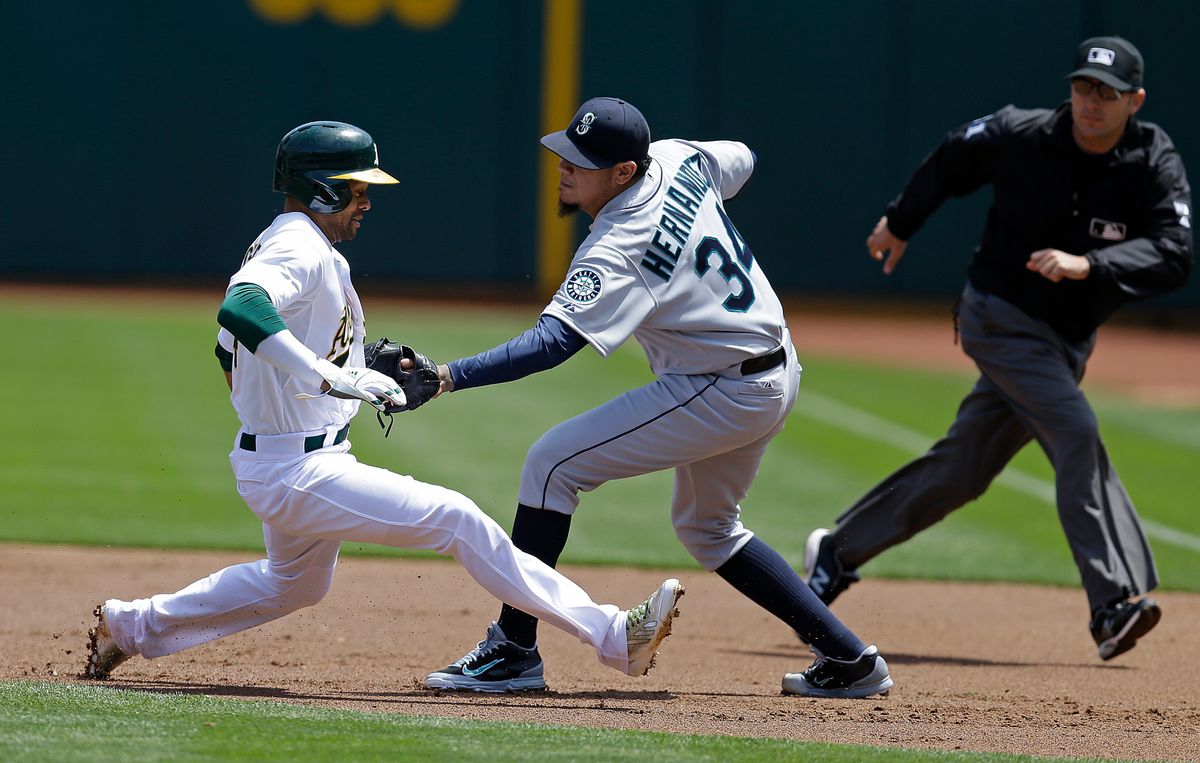 A federal investigation of pay practices in Major League Baseball has been expanded to include two more teams—the Baltimore Orioles and Oakland A’s—bringing to four the number of clubs that have come under scrutiny for possible violations of U.S. wage standards.
A federal investigation of pay practices in Major League Baseball has been expanded to include two more teams—the Baltimore Orioles and Oakland A’s—bringing to four the number of clubs that have come under scrutiny for possible violations of U.S. wage standards.
Officials with the department’s Wage and Hour Division, who confirmed they are investigating the Orioles and A’s, also disclosed terms of settlements that will require the Miami Marlins and San Francisco Giants to give back wages to underpaid workers.
According to agency spokesman Jason Surbey, the Marlins agreed to pay $288,290 in back wages and damages to 39 team employees, including clubhouse and office staff. The 23 clubhouse workers, who provide services to team players such as cleaning and preparing the locker room for games, were paid $50 a day. But they worked as many as 11 hours on game days, and so were not properly paid the minimum wage and overtime, Surbey said.
The settlement with the Giants involves payment of $220,793 in back wages and damages to 78 employees. Most were interns who received stipends but were determined by the agency to have been employees entitled to minimum wage and overtime. The interns worked in baseball operations and group sales, among other duties, and were due back wages ranging from $60 to $4,000 apiece.
A Giants spokeswoman declined comment, and representatives of the Marlins and the baseball commissioner’s office did not return phone calls.
“Whether in America’s factories, fields or ball parks, a fair day’s work deserves a fair day’s pay,” said David Weil, administrator for the Wage and Hour Division. “Unfortunately, in our recent investigations of Major League Baseball teams, we found employees not being paid the minimum wage and overtime to which they are legally entitled. That’s unacceptable and I am pleased that we have been able to secure back wages for those workers.”
Federal officials would not provide details of the Orioles and A’s cases, describing them as open investigations. Team representatives also declined to give details.
Wage settlements with the Miami Marlins and San Francisco Giants involve paying more than a half million dollars in back wages and damages to more than 100 employees. (iStockphoto)
“The Oakland A’s continuously review their employment practices and believe that, as a result, they are in compliance with all of their wage payment obligations,” said A’s public relations director Bob Rose in a written statement. An Orioles spokesman said the club is “aware of an ongoing investigation, but we don’t have any comment at this time.”
As reported by FairWarning in October, the newly settled Giants wage case was the second one involving the team. Last year, the Giants agreed to pay $544,715 in back wages and damages to 74 employees. Some were clubhouse workers who the Labor Department said were paid at a daily rate of $55 but at times worked so many hours that they got less than minimum wage and no overtime. The federal minimum wage is $7.25. California has a higher minimum of $8 per hour.
The Giants also were found to have improperly classified some workers as exempt from overtime pay, including clubhouse managers and video operators for the parent team and its minor league affiliates.
Unpaid internships, which have been especially prevalent in glamour industries such as entertainment, media and sports, have generated controversy and private litigation. Under Labor Department guidelines, unpaid internships are proper only when designed for the education of interns, not to benefit the employer or displace regular workers.
The Labor Department believes that questionable pay practices “are endemic to our industry,” according to a Sept.12 memo from the baseball commissioner’s office to presidents of all Major League clubs. With more wage abuses in the broader economy than it can possibly handle, Wage and Hour officials have made clear that they would rather get voluntary compliance than be forced to investigate all 30 big league clubs.
In an email last August to Robert D. Manfred, Jr., chief operating officer of Major League Baseball, a senior Wage and Hour official said: “What I need to be able to do is explain…exactly how we are working collaboratively to ensure that other franchises are moving toward compliance.”
Although the baseball commissioner does not control employment practices of individual teams, the commissioner’s office summoned representatives of all teams to a November briefing by Wage and Hour officials in Orlando. Even so, the focus has since widened to include the Orioles and the A’s.
Wage compliance by the dozens of minor league affiliates of big league teams has also been a concern. For example, the Memphis Redbirds, a farm club of the St. Louis Cardinals, was cited for wage violations in 2009 and again in 2010, and required to pay back wages of more than $54,000 to employees and interns. The team now is owned by the Cardinals, but was under different ownership at the time the violations occurred.



Shares